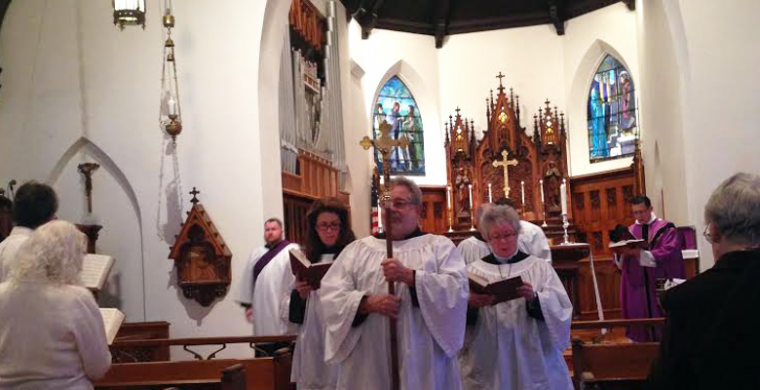QUINCY: Supreme Court Set Back for the Episcopal Church. Court Rules in Favor of Quincy Anglicans
By David W. Virtue DD
www.virtueonline.org
November 28, 2014
The Illinois Supreme Court this week denied a petition by the Episcopal Church to review the ruling of a lower court which found that contested funds and properties in various locations throughout Illinois rightfully belong to the Diocese of Quincy of the Anglican Church in North America.
The decision effectively brings to a close several lawsuits brought by the Episcopal Church against Illinois Anglicans over funds and property that have been in contention since a 2008 split over doctrinal issues.
An Illinois District Court of Appeals had earlier upheld the decision by the court in Adams County in favor of the Anglican Diocese. The court ruled that there is no provision in the governing documents of the Episcopal Church (USA) that keeps a Diocese from withdrawing its membership in that organization. The Supreme Court has now subsequently decided in favor of the lower courts in its denial of the Episcopal Church's appeal.
"We give thanks to Almighty God for His providence," said the Right Reverend J. Alberto Morales, OSB, ninth Bishop of Quincy. "Our work remains the same as it ever has been, though -- to seek first the Kingdom of God and His righteousness. We trust in Him to provide everything else we need as we seek to make Jesus Christ known throughout this portion of the Kingdom."
This is a major setback and a slap at the Dennis Canon with the court now ruling in favor of "Neutral Principles".
Noted canon lawyer Allan Haley says that what this means is that the highest court of a State has now ruled that there is no provision in the governing documents of the Episcopal Church (USA) that keeps a Diocese from withdrawing its membership in that organization. The Church in fact is an unincorporated association of dioceses fashioned under American common law, and not under the laws of any one given State. Under the First Amendment, members of such associations are free to leave the group at any time, with only reasonable restrictions placed on their ability to do so (They could be required to pay any back dues still owed, for example.). The opinion delivered last April by the Illinois Fourth District Court of Appeal stands as written.
"ECUSA's options are now very limited," says Haley. "They could ask the Illinois Supreme Court to rehear their request -- a move that has never been known to be successful among the Illinois attorneys to whom I have talked. And they have 90 days within which to file a petition for certiorari (review) with the United States Supreme Court -- which thus far has turned down every other recent petition in the various church property cases."
Another setback for TEC is that the remnant Diocese of Quincy now no longer exists. It was absorbed into the Diocese of Chicago, so one must ask what legal leverage the Episcopal Church has in its dealings with the Quincy Anglicans. The Episcopalians have no diocese to speak of.
Now, one must ask, is the tide finally turning in the Episcopal property wars?
This decision will come as a very useful precedent for the courts in the other pending diocesan withdrawal cases, notes Haley.
Courts in Texas (Ft. Worth), California (San Joaquin) and South Carolina can now cite this as case law.
The Anglican Diocese of Quincy counts parishes in seven states and has more than doubled in size and in the number of parishes since the 2008 split. [Quad Cities Anglicans are represented by congregations in Rock Island, Moline, Silvis, and Geneseo, as well as the plant of a new mission in Davenport.] Episcopalians of the former diocese have been consolidated into the Episcopal Diocese of Chicago.
END














